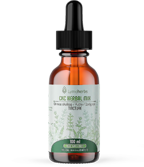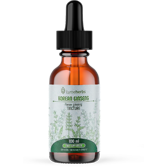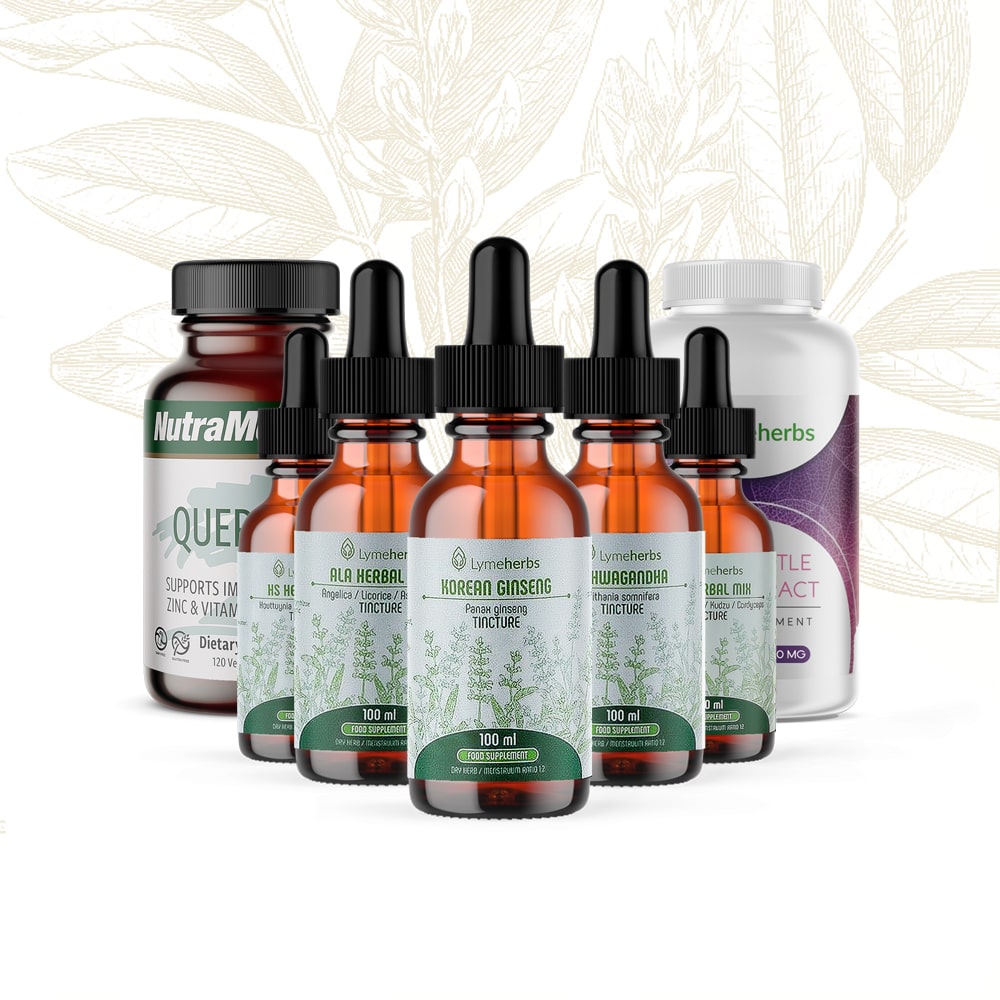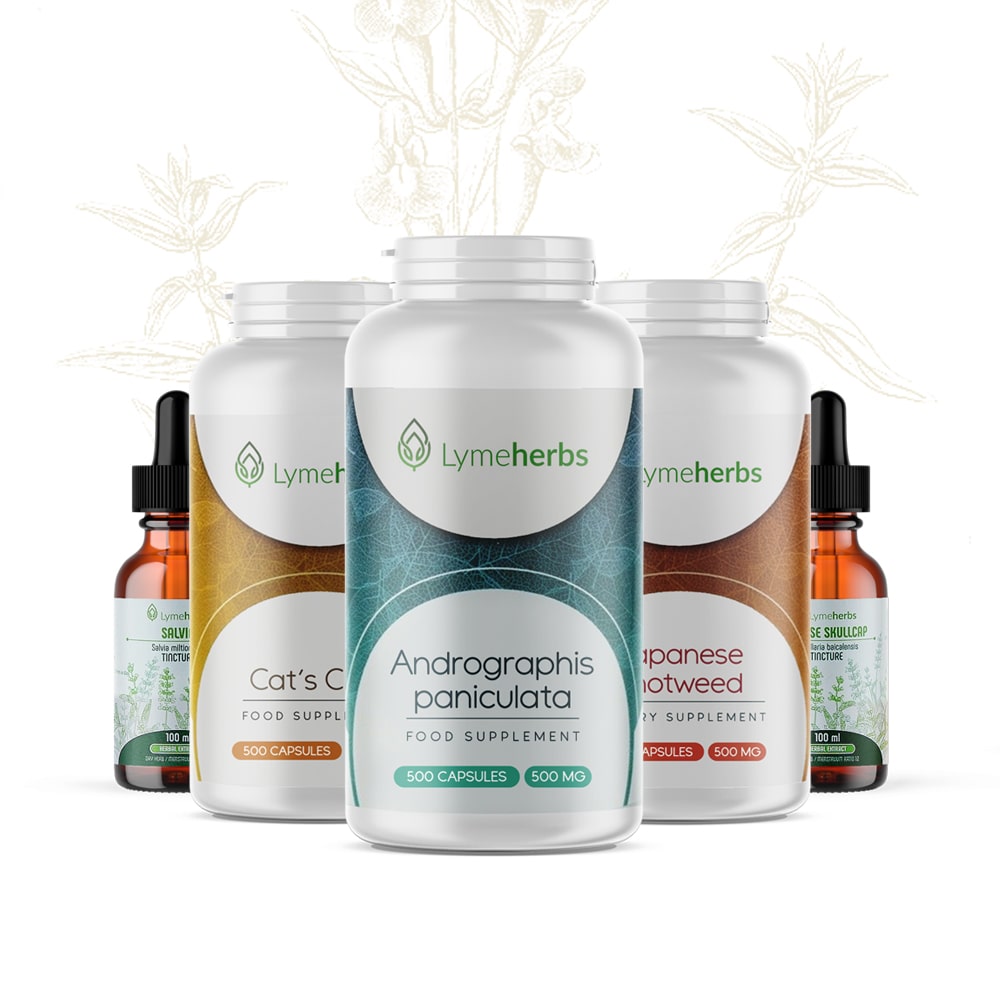Ehrlichia treatment
551.49€ to renew 2 times
This pack must be added to the extended protocol.
Treatment should be started 15 weeks after the start of the extended protocol.
This pack has sufficient quantities for the first 19 weeks of total treatment, you must renew the purchase of this pack 2 times to treat yourself for 57 weeks until week 72.
Dosage
Extended protocol (68 weeks)
| Weeks | 1 | 2 | 3 | 4-68 | Total |
|---|---|---|---|---|---|
| Polygonum c. (per day in 3 times) | 3 | 6 | 9 | 12 | 7406 capsules |
| Andrographis p. (per day in 3 times) | 3 | 6 | 9 | 12 | 7406 capsules |
| Uncaria t. (per day in 3 times) | 3 | 6 | 9 | 12 | 7406 capsules |
| Scutellaria b. (per day in 3 times) | 1,5ml | 2ml | 2,5ml | 3ml | 1407 ml |
| Salvia m. (per day in 3 times) | 1,5ml | 2ml | 2,5ml | 3ml | 1407 ml |
Ehrlichia treatment (57 weeks)
| Weeks | 15-72 | Total |
|---|---|---|
| Withania s.(per day in 6 times) | 3 ml | 1197 ml |
| Panax g. (per day in 3 times) | 1,5 ml | 598,5 ml |
| HS Herbal Mix (per day in 6 times) | 6 ml | 2394 ml |
| ALA Herbal Mix (per day in 6 times) | 6 ml | 2394 ml |
| CKC Herbal Mix (per day in 6 times) | 6 ml | 2394 ml |
| Quercetin (per day in 2 times) | 2 | 3325 capsules |
| Silybum m. (per day in 3 times) | 6 | 2660 capsules |
This pack contains
The quantities provided in this pack correspond to a duration of 19 weeks, to be renewed twice.

Withania somnifera / Ashwagandha
4 bottles of 100ml with alcohol in a 1:2 dilution
Ashwagandha (Indian ginseng, Lat. Withania somnifera) is a herb which has a very positive effect on the nervous system and is worth supporting in case of neurological problems. Its effect in Lyme disease is multidirectional, as you can learn from the previous descriptions. For this reason, it blends in very well with the therapy.
Buy just this

ALA Herbal Mix
8 bottles of 100ml with alcohol in a 1:2 dilution
The ALA mix is made up of extracts from Angelica Sinesis Root, Licorice Root and Astragalus Membranceus Root:
Angelica sinensis due to the content of coumarin dilates blood vessels, so it is excellent in improving blood circulation in internal organs and muscles. Angelica sinensis is also recommended in the treatment of neurosis, insomnia and respiratory diseases. It is also used to reduce Lyme neurotoxins (e.g. quinolinic acid). It can sometimes contribute to mild diarrhoea.
Licorice (Liquorice) is a herb used for Babesia, Chlamydia, Ehrlichia and Yersinia. It is also a herb with strong antiviral properties and a powerful synergist. Synergistic herbs are those that facilitate and enhance the action of other plants and pharmaceuticals. Licorice should therefore be used in combination with other herbs. The reported side effects relate to the use of this herb in large quantities and as a sole preparation (rather than in a synergistic combination). In this case, do not use Licorice for more than 4-6 weeks. Used alone or in large doses, it can cause, among other things, numbness, oedema, limb weakness, dizziness, headache or hypertension especially in the case of older people. Licorice is contraindicated when suffering from hypertension, hypokalaemia, hypernatraemia and in case of low testosterone levels.
Astragalus membranceus is an immunostimulant herb. It increases levels of gamma interferon and interleukin 2. High levels of these reduce the likelihood of infection and if infection does occur, the effects of the disease will be much less, the development of symptoms weaker and the disease easier to treat. It should be taken by people living in Lyme disease endemic areas. It also increases CD4 titres and the CD4/CD8 ratio. The higher the level of CD4 white blood cells, the better the individual response to infection and treatment. Astragalus membranaceus is contraindicated in the late stage of Lyme disease because it stimulates the already increased TH1 reactions. This may worsen the symptoms of the disease. It is, however, indicated in pre, and early disseminated Lyme disease states.
Buy just this

CKC Herbal Mix
8 bottles of 100ml with alcohol in a 1:2 dilution
The CKC mix is made up of extracts from Chinese skullcap root, Kudzu root and Cordyceps sinensis :
Chinese skullcap (Baikal skullcap, Lat. Scutellaria baicalensis) acts as a modulator of the cytokine cascade, i.e. a regulator of inflammatory processes taking place in the nervous system. The spectrum of action of this herb is wide. In addition to its positive effects on the nervous system, Baikal skullcap has strong antiviral and antibacterial effects. It reduces the replication of pathogens, suppresses the expression of viral genes, interferes with the penetration of viruses, affects the functions of the immune system and has many other health-promoting properties. Chinese skullcap is also a very good synergist. Synergy means that the combination of two (or more) factors gives better results than the sum of the parts, i.e. the effect is intensified. So Chinese skullcap goes very well in combination with herbs but when you want to combine it with medicines, be sure to consult your doctor. Chinese skullcap can affect insulin and blood sugar levels, so people with type 1 diabetes should be cautious. The plant can interact with medications that lower blood pressure.
Kudzu (Lat. Pueraria lobata) has a number of health-promoting properties. The components contained in the plant show anti-inflammatory and antioxidant effects. Puerarin is considered to be a particularly valuable ingredient, which exhibits anti-arrhythmic, blood circulation promoting and anti- diabetic effects. Kudzu has become popular as a support for addiction treatment, but it also has positive effects on the nervous system. It shows anti-inflammatory effects within the nervous system. It is useful for the symptom of feeling “pressure” in the brain or neurogenic pain.
Cordyceps is a medicinal fungi. It is a powerful adaptogen. It protects mitochondria, supports cellular respiration processes and stimulates ATP production. It has an immunomodulating effect, i.e. if the immunological activity is too high, the fungi lowers it, and if it is too low, it raises it. On the one hand, it has an antibacterial effect and at the same time it lowers the concentration of inflammatory cytokines. It strengthens the heart muscle and lowers blood pressure. It helps with a reduced sex drive and problems with memory and concentration and the so-called brain fog.
Buy just this

HS Herbal Mix
8 bottles of 100ml with alcohol in a 1:2 dilution
The HS mix is made up of extracts from Houttuynia cordata herb, Salvia miltiorrhiza root :
Houttuynia cordata is a herb used for Lyme, Bartonella and Mycoplasma infections. It is also a herb with strong antiviral properties. It inhibits viral replication and prevents viral infections. Houttuynia has immunomodulatory and anti-inflammatory properties. Houttuynia has a specific fishy smell and aftertaste.
Salvia (Red sage, Lat. Salvia miltiorrhiza) is a herb that, like Chinese skullcap is used as a modulator of the cytokine cascade, i.e. it regulates the complex inflammatory process triggered during infections, including those taking place in the nervous system. In addition, it protects the integrity of the lymphatic endothelium, limiting cell invasion by pathogens or the harmful effects of cytokines. We have written about the importance of modulating the cytokine cascade in the “Practical Guide – Application of Herbal Therapies for Lyme Disease and Coinfections”. An important property of Salvia is the protective function of the Golgi apparatus of nerve cells. The Golgi apparatus is an organelle found in the cell that serves to chemically modify the substances produced by the cell, sort them and distribute them within the cell. The Golgi apparatus of nerve cells is damaged in the course of Lyme and tick-borne diseases. It is also damaged in neurological diseases such as multiple sclerosis, Parkinson’s disease or Alzheimer’s disease. If the Golgi apparatus is damaged in the course of a tick- borne disease, symptoms similar to those of the above-mentioned neurological diseases can develop. Please note the great importance of Salvia in the context of tick-borne diseases. This herb should already be added as one of the primary herbs in the treatment of Lyme disease. If you have used the Buhner Protocol as a basic core therapy and you have increased neurological problems then you can increase the dose of Salvia by up to 2-3 times. This herb is safe to use. If you have been using herbs other than Buhner’s herbs as the core of therapy, and you have increased neurological symptoms, then think about introducing this herb as an adjunct to therapy.
Buy just this

Korean Ginseng / Panax ginseng
2 bottles of 100ml with alcohol in a 1:2 dilution
Korean ginseng (Lat. Panax ginseng) increases vitality and improves blood flow. It also contributes to the reduction of mental fatigue and stress levels. It contributes to strengthening immune system functions as it activates lymphocytes (immune system cells). Korean ginseng also contributes to the improvement of sexual function in men. It contributes to lowering blood glucose levels and improving lipid metabolism. Korean ginseng has an overall stimulating and strengthening effect on motor and secretory centres. Unlike Siberian ginseng, Korean ginseng has a lowering effect on blood pressure. People with a tendency to low blood pressure should exercise caution when using this variety of ginseng.
Buy just this

Silybum marianum / Milk Thistle
5 boxes of 180 capsules of 200mg
Milk thistle (Lat. Silybum marianum) has a positive effect on liver function. It protects the liver against toxic and pathogenic factors. It stimulates liver cleansing and regeneration of a damaged liver. It shows antioxidant and immunostimulating properties.
Buy just this

Quercetin
5 boxes of 120 capsules of 500mg
Usage precautions
- Mother tinctures are made with an alcohol base and are therefore not suitable for pregnant women.
- Scutellaria baicalensis : Type 1 diabetics should exercise strong caution with the herb as it can affect insulin and blood sugar levels. It should not be used during pregnancy. Caution should be exercised if you are taking pharmaceuticals as it can increase the bioavailability of the drugs, thus increasing their impacts. It may interact additively with blood-pressure-lowering drugs.
- Ashwagandha may cause drowsiness, so take it at night the first few times to see how you do.
- Angelica sinensis shouldn’t really be used with anticoagulants.
- Licorice is contraindicated in hypertension, hypokalemia, pregnancy, hypernatremia, and low testosterone levels.
- Astragalus : with interferon and acyclovir may increase their effects. Not for use in people with transplanted organs.
- Pueraria lobata: must not be combined with methotrexate.
- Quercetin not be taken along with digoxin.
Protocol to choose
The treatment of Ehrlichia has a total duration of 57 weeks and must be taken with the extended protocol.





